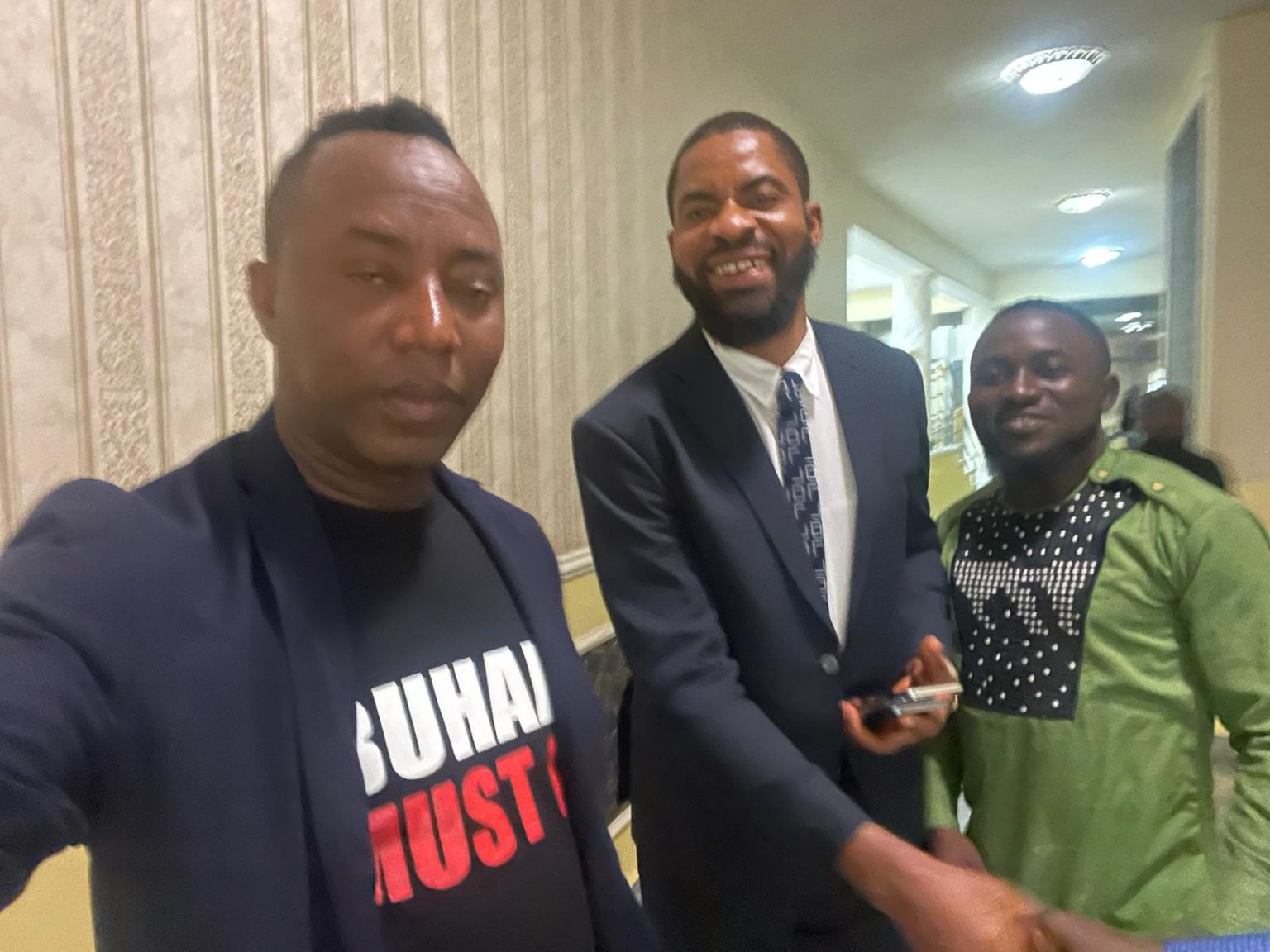The clash between human rights activist Omoyele Sowore and the Nigerian Department of State Services (DSS) over a tweet critical of President Bola Tinubu underscores a growing concern about freedom of expression in the digital age. Sowore, publisher of Sahara Reporters and a former presidential candidate, refused to delete the tweet despite pressure from the DSS, which argued the post disparaged the president and posed a threat to national security. This incident, brought to light by fellow activist Deji Adeyanju, highlights the increasing use of government power to stifle dissent and control online narratives, raising questions about the balance between national security and fundamental human rights. The DSS’s alleged pressure on X (formerly Twitter) to remove the tweet represents a potentially troubling precedent for government censorship and control over online discourse in Nigeria.
Sowore’s defiance in the face of government pressure highlights his longstanding commitment to freedom of speech and his history of challenging authority. He has been a frequent critic of successive Nigerian governments and has faced legal challenges and even detention for his activism. This latest incident reinforces his image as a staunch defender of free speech, willing to confront power even at personal risk. His refusal to delete the tweet sends a strong message about the importance of resisting government overreach and protecting the right to express critical opinions, even those deemed unfavorable by those in power.
Adeyanju’s criticism of the DSS further amplifies the concerns surrounding this incident. He argues that the government’s actions constitute an abuse of power and an attempt to intimidate dissenting voices. By pressuring X to remove Sowore’s tweet, the DSS, according to Adeyanju, is attempting to suppress legitimate criticism and control public discourse. This kind of action, he argues, undermines the principles of democracy and erodes the fundamental rights of citizens to express their views freely. Adeyanju’s intervention frames the incident not merely as a personal dispute between Sowore and the government but as a broader issue with implications for the future of freedom of expression in Nigeria.
The incident also raises important questions about the role of social media platforms in mediating free speech and government censorship. X’s notification to Sowore about the DSS’s request demonstrates the platform’s awareness of the delicate balance it must strike between complying with government requests and protecting users’ right to free expression. While X ultimately did not remove the tweet, the fact that they notified Sowore about the request suggests a degree of cooperation with the government’s demands. This raises concerns about the potential for social media platforms to become instruments of state censorship, particularly in countries with less robust protections for free speech.
The DSS’s claim that Sowore’s tweet posed a threat to national security warrants careful scrutiny. While governments have a legitimate interest in protecting national security, this justification should not be used as a pretext to suppress dissent or silence critical voices. The vague and unsubstantiated nature of the DSS’s claim in this instance raises concerns that the “national security” argument is being deployed to stifle legitimate political expression. Without clear and demonstrable evidence of a genuine threat, such claims risk undermining public trust and eroding the very freedoms they purport to protect.
This incident serves as a reminder of the ongoing struggle to protect freedom of expression in the digital age. As governments increasingly seek to control online narratives and suppress dissent, it is crucial for individuals, activists, and civil society organizations to defend the right to free speech and hold those in power accountable. The case of Sowore and the DSS highlights the need for vigilance in protecting these fundamental rights and resisting attempts to silence critical voices. The increasing use of “national security” as a justification for censorship demands careful scrutiny and a robust defense of the principles of free expression, both online and offline. The incident also underscores the complex role of social media platforms in navigating these challenges and the need for transparency and accountability in their handling of government requests for content removal.














